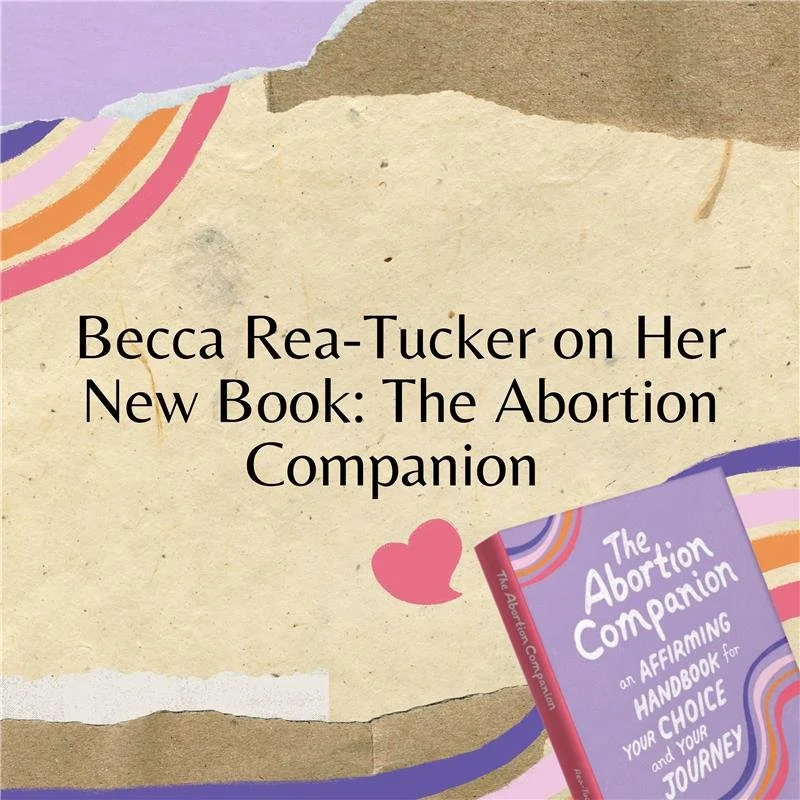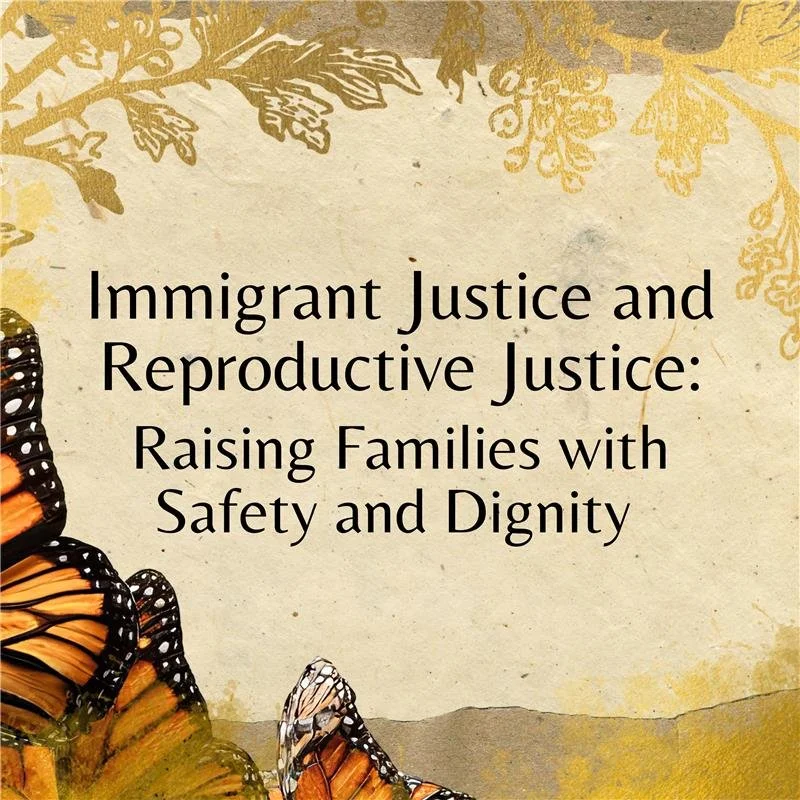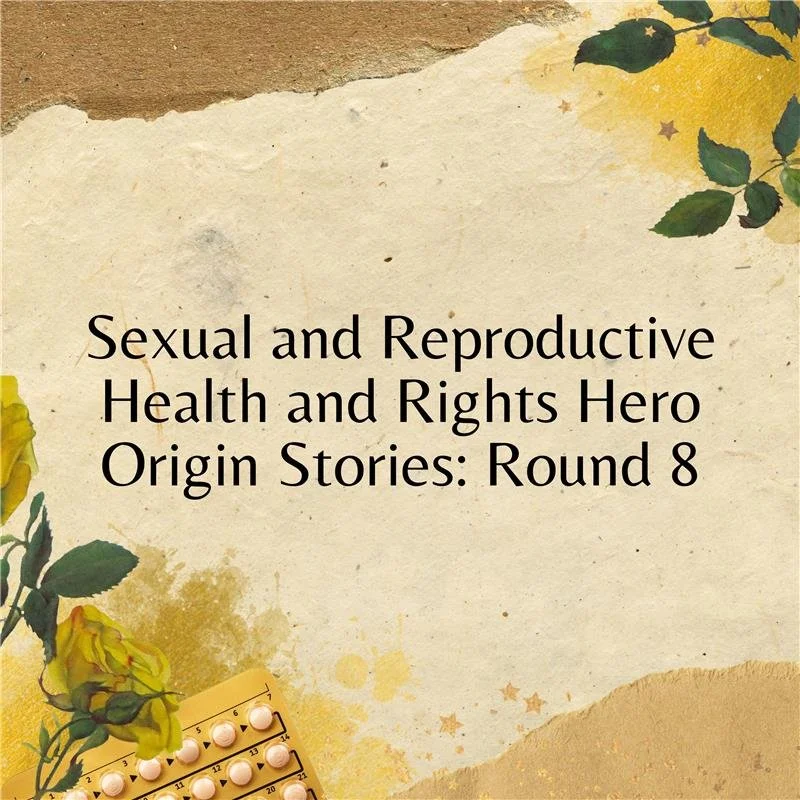
Recent Podcasts
If you're planning to have an abortion soon or you have had one in the past… if you’re feeling a strong emotion (or many of them) before or after receiving care… or if you are looking to support a friend, Becca Rea-Tucker’s (author, baker, and reproductive rights advocate) new book, The Abortion Companion: An Affirming Handbook for Your Choice and Your Journey, is a safe and supportive resource to learn more and have a safe space.
In the U.S., a large proportion of immigrant communities remain unable to access healthcare. And even before the fall of Roe v. Wade, Latine people, immigrants, and communities of color faced disproportionate barriers to abortion care. Criminalization, ICE raids, travel, and language barriers further deter immigrant communities from seeking abortion care. Lupe Rodriguez, Executive Director of the National Latina Institute for Reproductive Justice (NLIRJ), sits down to talk with us about how immigrant justice and reproductive justice intersect.
There’s still time in the year to hear from leaders and advocates in the sexual and reproductive health and rights field! On this episode of our most popular series, SRHR Hero Origin Stories, we talk to a number of amazing heroes in the field of reproductive health, rights, and justice about how they began working in this space. On this episode, hear from Lupe Rodriguez, Executive Director of the National Latina Institute for Reproductive Justice, Dr. Monica McLemore, Professor at New York University’s Rory Meyer’s College of Nursing, Samira Damavandi, Senior Policy Associate for Federal Issues at the Guttmacher Institute, and Jennie Wetter, Director and Host of rePROs Fight Back.
Feminist foreign policy is a policy framework that challenges traditional understandings of foreign policy. It prioritizes peace, gender equality, human rights, and environmental integrity. Jill Montilla, Development and Communications Associate with the Feminist Foreign Policy Collaborative and Spogmay Ahmed, Senior Policy Advisor with the Feminist Foreign Policy Collaborative, sit down to talk with us about why a framework that disrupts colonial, racist, patriarchal, and male-dominated power structures is critical.
Impending Medicaid cuts, the One Big Beautiful Bill Act’s defunding of Planned Parenthood, and the freezing of Title X funding have fueled clinic closures across rural areas. Ashley Kurzweil, Senior Policy Analyst for Reproductive Health and Rights at the National Partnership for Women and Families and Sarah Coombs, Director for Health System Transformation at the National Partnership for Women and Families sit down to talk with us about the future of rural hospitals and clinics and the patients they care for.
It’s that time of year again! Ready for a reprisal of our most popular series, SRHR Hero Origin Stories? On this episode, hear from Christina Krysinski, Associate Director for Global Advocacy at Planned Parenthood Federation of America and Planned Parenthood Action Fund, Asha Dahya, filmmaker, reproductive rights and freedom advocate, and mother of two, and Rachel Marchand, Senior Policy Analyst and Podcast Producer at rePROs Fight Back.
If you haven’t already, check out our previous episodes, SRHR Hero Origin Stories: Round 6, SRHR Origin Stories: Round 5, SRHR Hero Origin Stories: Round 4, and more, where we talk to a number of amazing heroes in the field of reproductive health, rights, and justice about how they began working in this space.
No one’s health experiences exist in a vacuum. Individuals live multifaceted lives and often have multiple, intersecting health concerns. Our health influences our lives, and our lives (including our economic realities) influence our health. Nourbese Flint, President of All* Above All and All* in All Action Fund, sits down to talk with us about how comprehensive reproductive justice, including abortion access, requires economic security.
Texas, long at the forefront of restrictive abortion policy in the U.S., has passed a new law (which goes into effect in early December) which would take state law and the already in-place abortion ban (SB 8) and apply it beyond its borders. Jessica Waters, Senior Scholar in Residence at the School of Public Affairs at American University, sits down with us to talk about Texas’ new law restricting telehealth medication abortion, an incredibly common and safe method of care.
November 12, 2025, is #ThxBirthControl Day-- a day to celebrate the multiple methods of contraceptive care that allow people to live their fullest lives and reach their dreams and goals. Monica Edwards, Senior Manager, Public Policy at Power to Decide and Tara Mancini, Public Policy Director at Power to Decide, sit down to talk with us about the magic of #ThxBirthControl Day, as well as the recent attacks that threaten our access to the contraception that helps shape our lives.
Tune In!
Reproductive health and rights should not be restricted, and neither should your listening options! Tune into our podcast on your favorite platform and join us on social media for more updates.











If you're planning to have an abortion soon or you have had one in the past… if you’re feeling a strong emotion (or many of them) before or after receiving care… or if you are looking to support a friend, Becca Rea-Tucker’s (author, baker, and reproductive rights advocate) new book, The Abortion Companion: An Affirming Handbook for Your Choice and Your Journey, is a safe and supportive resource to learn more and have a safe space.